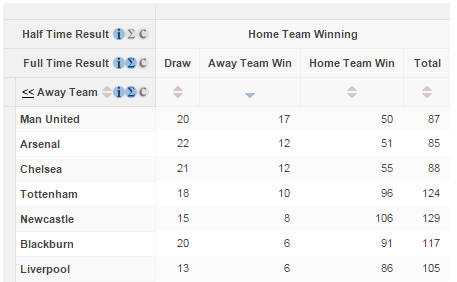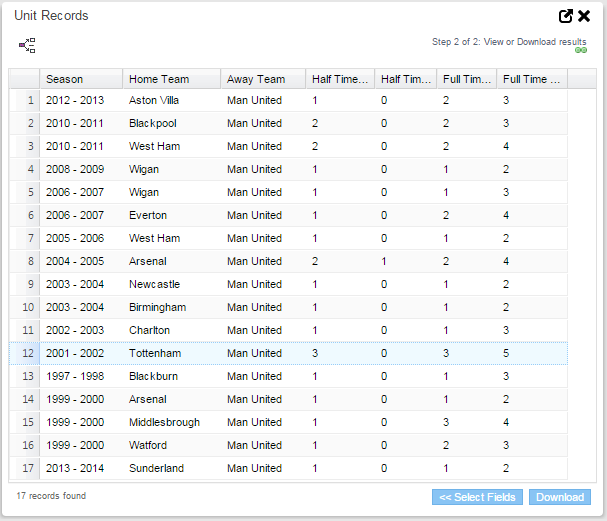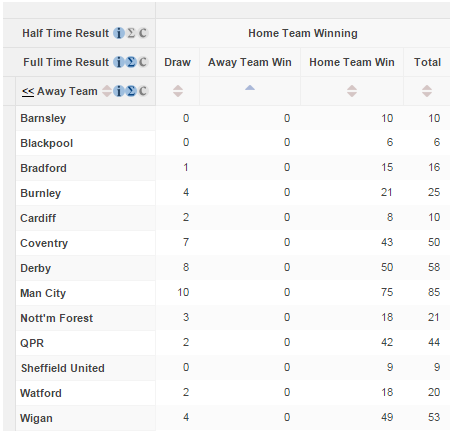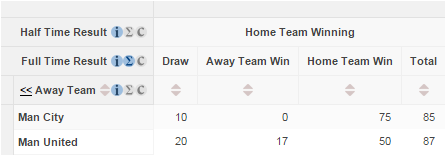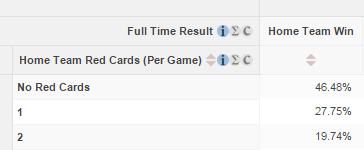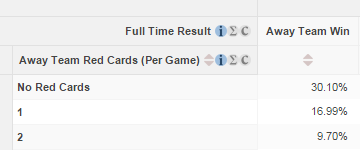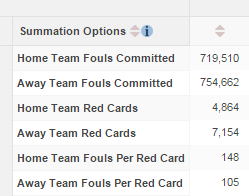Watching your team lose at half time? You might as well go home now. We've crunched the numbers, and the numbers say they probably won’t win.
One of the great things about having a sophisticated data analytics tool at your disposal, is that you can analyse just about anything. If it can be counted or measured in some way, then our software can consume your data.
With the new football season underway all over Europe, we loaded as much match data as we could find into our SuperSTAR suite: the results of almost 150,000 games across 22 European leagues over a twenty year period from 1995 to the end of last season.
Then we started exploring. Here are just five interesting insights we found.
1. Home Advantage is Huge
The single biggest factor that decides the result of a football match is where it’s played: almost half of all matches played over the last 20 years have been won by the home team (with away wins and draws accounting for about a quarter each).
2. Except for Viewers in Scotland
There is some variability between countries, however: Scotland and Greece stand out.
In Scotland, where the game has traditionally been dominated by just two big clubs, the away team wins as many as 33% of matches. On the other extreme, Greece has by far the most dominant home teams of any European league.
3. But It's Becoming Less Important
It’s a slight change, but the power of home advantage is gradually falling. And in 2006, away wins became more likely than draws for the first time. Perhaps an indication that the game is becoming increasingly dominated by a small number of big clubs who can win regardless of where they play.
4. If Your Team Is Losing At Half Time, You Might As Well Go Home
If your team is losing at half time, you might as well head home, especially if they’re playing away. Over a 20 year period, away teams have come back to win on only 5% of occasions (home teams who are losing at half time do a little better, at 11%).
Some teams do better than others, of course. Looking at just the English Premier League, for example, Manchester United, Arsenal, and Chelsea have remarkably similar records of coming from behind to win away from home, with Manchester United achieving this feat on 17 occasions (20% of all 87 times when they've entered the break behind as the away team):
Using SuperWEB2’s Record View feature, we can drill further into the data to see the details of those 17 matches, including one remarkable occasion in September 2001, when they came back from 3-0 down against Tottenham to win the game 5-3:
At the other end of the table, there are 13 teams who have never overturned a half time deficit away from home in the Premiership:
Perhaps most surprising about that list is the presence of Manchester’s other team: the gulf between these two sides in this respect is quite remarkable. Of the 85 occasions that Manchester City have entered the break behind away from home, they have never come back to win the game:
5. Teams Playing Away Get More Red Cards Per Foul Committed
So why might home advantage be so powerful?
Here’s just one possible reason we uncovered: teams playing away are more likely to have a player sent off.
Clearly, losing one of your players has a big impact on the result of a game. Home teams win 46% of games that they complete with all 11 players still on the field. Lose a player, and this drops to just 27%:
It’s a similar story for away teams. They win 30% of games in which they receive no red cards, but only 17% where they lose a player:
But this is where it gets interesting. For all the games in our dataset where we have this information, the total numbers of fouls committed by home and away teams is remarkably similar (750,000 vs 720,000). Of course these numbers don't say anything about the severity or type of fouls committed, yet they do show that away teams receive significantly more red cards than home teams.
On average, for every 105 fouls committed by an away team, they receive 1 red card. Home teams get to commit 148 fouls on average for each red card:
Could it be possible that referees are subconsciously influenced into penalising the away team more harshly than the home team?

